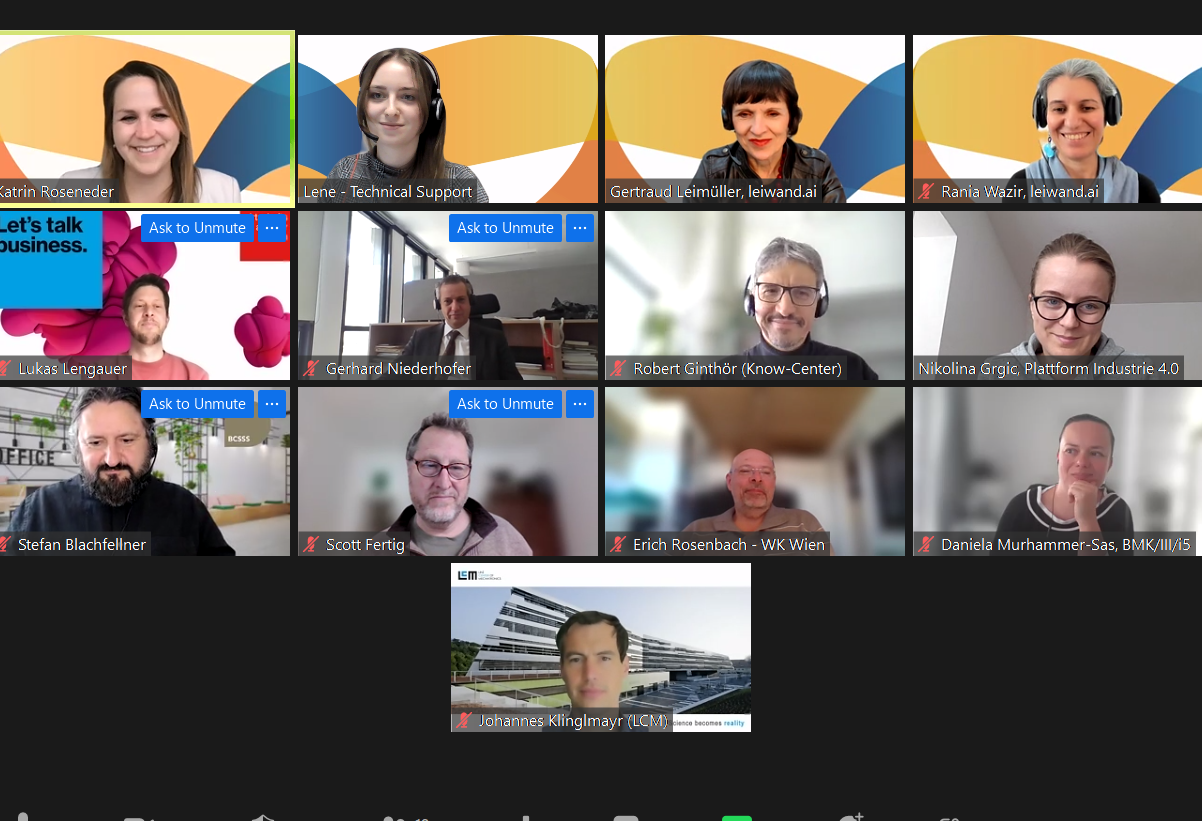AI is not yet green
Green AI - How do we ensure that Artificial Intelligence (AI) itself becomes ecologically sustainable? How can sustainable AI be evaluated and its potential exploited? These questions were discussed in an interdisciplinary group at the workshop "Trustworthy AI and sustainability", initiated by leiwand.ai.
The workshop "Trustworthy AI and sustainability" took place virtually on April 6th 2022, and was part of the initiative "Trustworthy AI in practice" that was called to life by the founders of leiwand.ai, Rania Wazir and Gertraud Leimüller. The workshop was implemented together with the Vienna Chamber of Commerce and the Vienna Business Agency, as well as the research project fAIr by design (funded by the FFG).
The 25 participants were carefully selected from a broad range of stakeholder groups: AI developers, users of AI systems, scientists from different disciplines and stakeholders from companies and public administration, as well as representatives from environmental and human rights organisations. In a co-creation setting, the interdisciplinary participants were invited to join the discussion on areas of application of green AI, specific challenges and opportunities as well as practical requirements on AI to ensure its sustainability.
Two speakers launched the topic. In her keynote, Anne Mollen of AlgorithmWatch gave an overview on the systematic sustainability assessment of AI-based systems. The focus of her talk was on environmental sustainability and the dimensions of energy consumption, carbon footprintand greenhouse gas emissions, as well as indirect resource consumption. Additionally, she highlightedthe sustainability potential of AI applications and discussed some exemplary indicators and operationalizations.
Building on this, Valerie Hengl, Co-Founder and COO of Purency, gave practical insights into the use of AI for fast, scalable and efficient analysis of microplastics, with the aim of protecting consumers and the environment. She described that there is still little awareness of sustainable AI among providers and users of AI systems nationally and internationally.
In a subsequent plenary discussion including both speakers, a variety of topics were explored from different perspectives, such as data minimisation, the trade-off between the energy consumption caused by training of large and complex AI systems and the accuracy of the results, as well as the practical implementation of sustainability reporting.
Group picture of the online workshop
The discussion was further deepened in small interactive groups, and the opportunities for the ecologically sustainable design of AI systems were analyzed. Both groups had an intense and wide-ranging discussion; from opportunities in the area of standards and certifications and green KPIs, to the transparent design of sustainable business goals, knowledge building and awareness measures among all stakeholders. Download a summary of our findings here: Findings PDF
Major conclusions:
The exchange showed that the discussion on Green AI is still at a relatively early stage in Austria. It is important to raise awareness for the topic of green AI, since there is a great need for action - among other things due to the Corporate Sustainability Reporting Directive of the EU, which will oblige large companies to publish regular reports on their environmental and social impacts, including from the use of AI systems, starting in 2023. The interdisciplinary discourse must be continued in order to jointly shape the development and application of sustainable AI technology. Only through further multi-stakeholder engagement and discourse can the potential of sustainable artificial intelligence unfold and the numerous opportunities be exploited, as well as the emerging challenges be overcome.
You want to know more about trustworthy AI? Get in touch!
In cooperation with






